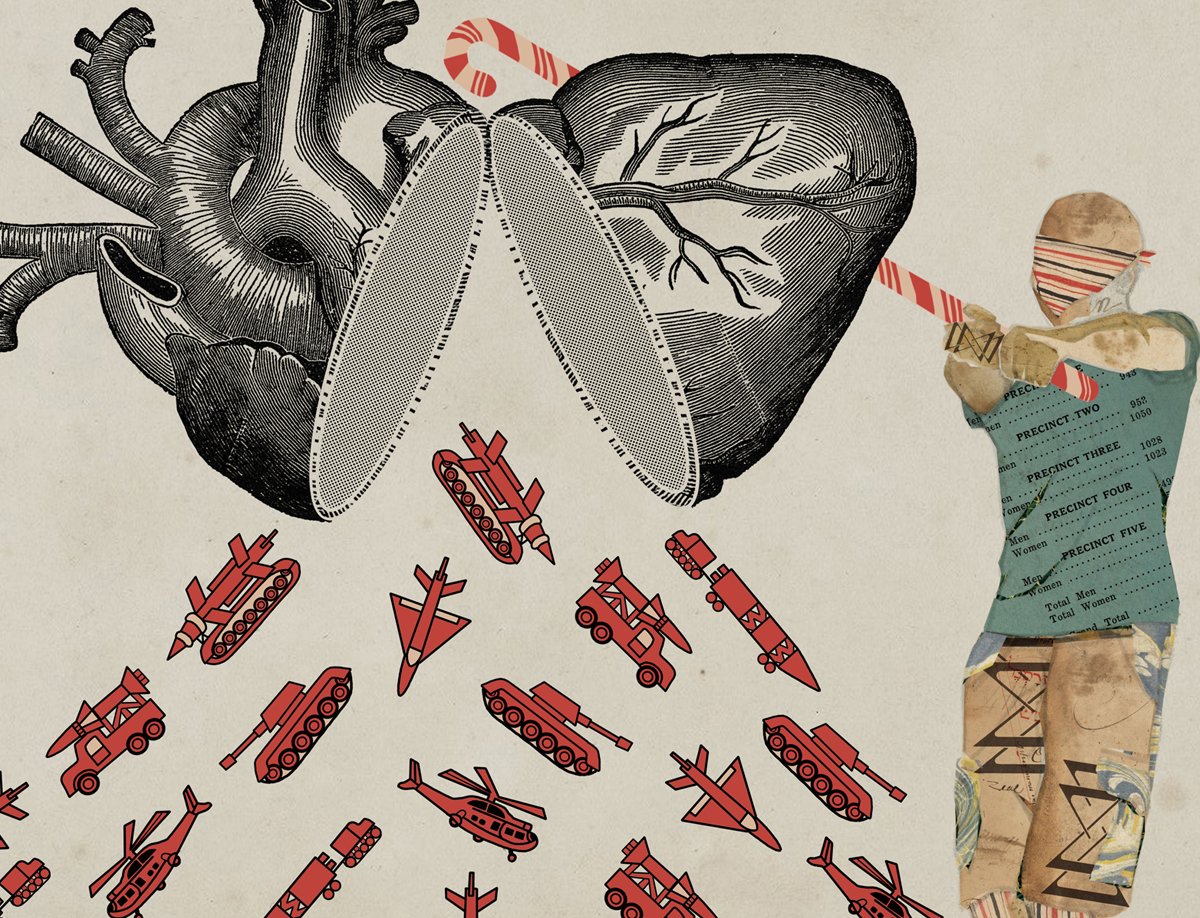Come gather ’round peopleWherever you roamAnd admit that the watersAround you have grownAnd accept it that soonYou’ll be drenched to the boneIf your time to you is worth savin’And you better start swimmin’Or you’ll sink like a stoneFor the times they are a-changin’
Bobby Dylan
In 1988, I spent a couple of weeks investigating the health and safety infrastructure in China because my employer at the time, Northern Telecom, was working with the Government of China to upgrade their telecommunications capabilities. We needed to make sure that there were adequate health facilities available in case our employees got sick. What we found was, from a Western point of view, the answer was unequivocally no. We could not depend on the quantity and quality of Western medicine capabilities should our employees need health care. If we were going to send employees to work in China, we would need to establish evacuation protocols.
In 1988, China was just beginning its transformation. The economy was growing rapidly, but inflation, unemployment and corruption were also running hot. Transportation was in its very early stages of development. Since there was a very limited network of highways and almost non-existent air travel, I travelled by train from Beijing to Shanghai on a rickety, dirty, slow cabin car. I saw thousands of workers starting to build roads by hand along the way. Not only was internet access not available, there were a limited number of telephone lines. While the country housed a billion people, due to the effects of the Cultural Revolution, the quality of education and training was very low and there were huge shortages of skilled workers.
In the short amount of time since my original visit, China has become a world leader in transportation, communications, human resource development as well as technology, manufacturing and military capabilities. When I returned for a month long visit in 2012, I flew into world class airports, I rode on sleek, fast trains, I had excellent internet access, I stayed in state-of-the-art hotels, universities were ubiquitous, and the new roads were pothole free. I even had access to high quality Western medicine as well as time-tested Eastern medicine if case I needed it. The changes took place far more quickly than I could have ever imagined.
China is just one example of mind-boggling changes happening all around us. In the first two decades of the 21st century, we have witnessed:
- The internet and social media become the dominant players in how we shop, consume news, communicate and connect with each other.
- AI grow from an abstract, science fiction fantasy to a revolutionary technology that will change the way we live, learn, and work.
- Climate change accelerate at a rate few people anticipated as we watched sea levels rise, glaciers melt, temperatures soar, and CO2 reach the highest level in history.
- Demographics shift dramatically to a more urban, educated and diverse mix.
- Military exercises rely less on drills and more on drones.
- Energy sources reverse the order of importance from coal to natural gas (Green energy increased from 2% in 2000 to 10% now, nuclear power stayed the same at about 10%, and fossil fuels decreased slightly to 80%.)
And still we:
- fiddle and fuss
- deny and delay
- pretend and postpone
- control and condemn
- lie and linger
Think about it.
Did the American War in Vietnam end more quickly than we expected in 1975? Yes. A little history. Eisenhower sent military advisors to Vietnam in the late 1950s after the French were defeated in a decisive battle with North Vietnam. Kennedy added more advisors in 1961 and Johnson kept escalating the war to a point at which there were over 500,000 American troops in Vietnam by 1970. Nixon started bringing soldiers home in 1971 and a “peace agreement” was signed in Paris in 1973. Nixon assured the South Vietnamese that the US would intervene if North Vietnam broke the agreement. People assumed that the South Vietnamese Government would be able to govern it’s portion of the country forever. Having rebuilt their forces and upgraded their systems, however, North Vietnamese forces launched a major offensive in 1975 and by April their tanks rolled through the gates of the Presidential Palace in Saigon while American helicopters were desperately evacuating the last of the personnel. No one thought Saigon would become Ho Chi Minh city so quickly. The toll: 2 million people died at a cost of nearly 1 trillion dollars with no benefits.
Did Iraq descend into chaos more quickly than we thought it would after the American invasion in 2003? Yes. After the “shock and awe” campaign launched in Baghdad over 20 years ago, looting commenced immediately and lasted until all the buildings were picked clean; civilian casualties grew rapidly; and armed insurgencies started a series of conflicts against US troops, between Shia and Sunni Muslims, and with ISIS and Iraqi security forces. In retrospect, there was poor US planning, terribly wrong assumptions, and misleading claims about chemical weapons and WMDs. As a result of the occupation, there was immediate chaos and on-going carnage for over 15 years. No one imagined that chaos could come so quickly and long term suffering last so long. The toll: 1 million people killed at a cost of 2 trillion dollars and no benefits – not to mention the PTSD of returning troops.
Did the Taliban take over control of Afghanistan more quickly than we thought they would in 2021? Yes. In July 2021, the US intelligence community concluded that the government of Afghanistan would collapse between 6 and 12 months after the departure of American troops. Having outlasted two superpowers through three decades of war, however, the Taliban seized vast swathes of territory and toppled the government in Kabul in just 10 days. In the end, as in Saigon, there were desperate attempts to evacuate Americans and loyal locals. Due to low morale, trust and the loss of US airstrikes, the Afghan government collapsed much more rapidly than anyone predicted. The toll: Almost 1 million people killed at a cost of more than 2 trillion dollars with no benefits.
Did we anticipate how quickly the financial system could crash in 2008? No. From 1998 to 2006, home prices more than doubled and mortgage debt of US households rose from 61% of GDP to 97%. The Federal Reserve contributed to this expansion by keeping interest rates low for a prolonged period. In addition, the rapid growth of mortgage-backed securities fueled the increase in borrowing because banks started offering “subprime” mortgages and then packaging them into securities. The result was a huge increase in demand that drove home prices up nationwide. When home prices peaked in 2007 and started to decline rapidly, there was an increase in mortgage defaults resulting in losses to holders of the securities. The drop in home prices plus the losses from securities sparked the financial crisis. In September, 2008, Lehman Brothers filed for bankruptcy. By the end of the year we had entered the Great Recession. Very few people saw this collapse coming. The toll: $2 trillion in Government bailouts and almost $20 trillion reduction in household wealth.
Did we prepare for how quickly a pandemic could spread in 2020? No. In spite of knowing the consequences of pandemics, we did little to prepare for COVID 19. In 1918, the Spanish flu killed 50 million people. In 1957, the Asian flu killed 1 million people. In 1968, the Hong Kong flu killed another 1 million people. Starting in 1981, HIV killed 32 million people world-wide. Since 2000, we have had seven pandemics of varying degrees of severity. As a result of the historical record and the increasing frequency of biological threats, one would think that we would be fully prepared for any new pandemic that might come our way. We weren’t and we still aren’t. In spite of all the evidence, we just couldn’t believe that a pandemic could run rampant throughout the world so quickly. The toll: Almost 7 million deaths and counting world-wide and over $16 trillion in economic costs in the United States alone.
What did we do instead?
- fiddled and fussed
- denied and delayed
- pretended and postponed
- controlled and condemned
- lied and lingered
Ponder these questions.
Will the effects of climate change happen more rapidly than we think it will? IMHO, Yes. We already know that the dreaded milestone of 1.5 Celsius increase in temperature will happen in the 2030’s. My bet is that we will hit that mark sooner rather than later. We are still dumping almost 40 billion metric tons of CO2 into the atmosphere every year and, to date, promises to achieve net zero have not been backed up with substantive programs.
Will AI assume a greater role in our lives more quickly than we think it will? IMHO, Yes. Microsoft, Google, Open AI and Facebook are investing billions in advancing their ChatBots, and the capabilities are increasing dramatically every month. While there are clearly risks and concerns associated with AI, the potential benefits could be enormous. Just because AI keeps getting better at generating content through deep machine learning doesn’t preclude us humans from generating new possibilities with our rich imaginations. For me, the biggest questions are 1) will humans do the work required to open new vistas and then use AI to accelerate progress toward realization? and 2) will organizations create the regulations and norms required to keep us safe? What I do know is that these changes will come more quickly than we think.
Will China achieve a dominant position in technology, military power, and manufacturing more quickly than we think it will? IMHO, Yes. America’s most senior military officers and business CEOs are both alarmed by China’s advancing capabilities. Their armed forces are steadily transforming themselves from defensive, domestic, and ground-based to highly agile, expeditionary, and power-projecting. Meanwhile, their technological and manufacturing capabilities keep advancing rapidly through heavy investments by the government. US forces, by comparison, have deferred modernization programs and declined in readiness across many areas due to a preoccupation with counterterrorism. Our military is spread thin across multiple theatres across the globe, while the Chinese military has been optimizing for a few key objectives in local theatre. Analysts are worried that the Chinese military is incorporating digital technologies such as AI and quantum computing. Many of these technologies, of course, are dual use which poses a threat not only militarily but also economically. I have no idea what’s going to happen, but my bet is that it will happen sooner rather than later. If they make as much progress in the next 10 years as they have since my first visit in 1988, I think we may have a problem.
Will the financial markets experience another panic and debt default? Will Russia’s unprovoked invasion of Ukraine spread to other countries and/or escalate to a nuclear confrontation? Will water shortages, food insecurity, species extinction and ecosystem collapse reach a point of no return? Will another crisis emerge that I haven’t even thought about? I have no idea, but whatever the crisis may turn out to be, it will probably be here more quickly than we think.
Existentially, will we:
- fiddle and fuss?
- deny and delay?
- pretend and postpone?
- control and condemn?
- lie and linger?
What can we do about all of these past, current and future disasters? I’m afraid my answer, as individuals, is “very little.” Yes, we can be more environmentally responsible and prepare contingency plans etc. We can quit fiddling and fussing and get focused. We can quit denying and delaying and get disciplined. We can quit pretending and postponing and start positioning for the future. We can quit controlling and condemning and start creating new ways of thinking and relating. We can quit lying and lingering and become more luminous. All easy stuff.
To me, however, our best option is simply to make our lives more meaningful by shifting from “doing” to “welcoming.” At least, that’s what I see as my challenge.
I’m hoping we will welcome fresh new experiences in our lives and open up to loving relationships. I’m hoping we will welcome each day with gratitude – to rejoice in the day we have been given and be glad in it. I’m hoping we will find calm and peaceful spaces in which we can appreciate the beauty of all we have and welcome the soothing sense of serenity. I’m hoping we will deepen our connections with each other, with Nature, and with what gives us a sense of meaning and purpose. I’m hoping we will get more engaged on a local level, welcome everyone to the party and create positive possibilities for all. I’m hoping we will support government officials who are genuinely committed to peace, harmony, and interdependence. Most importantly, I’m hoping we will elect women to positions of power. Yup, I’m hoping we will start swimmin, before we sink like a stone. May it be so.
Also published on Medium.




I love you Ricky!